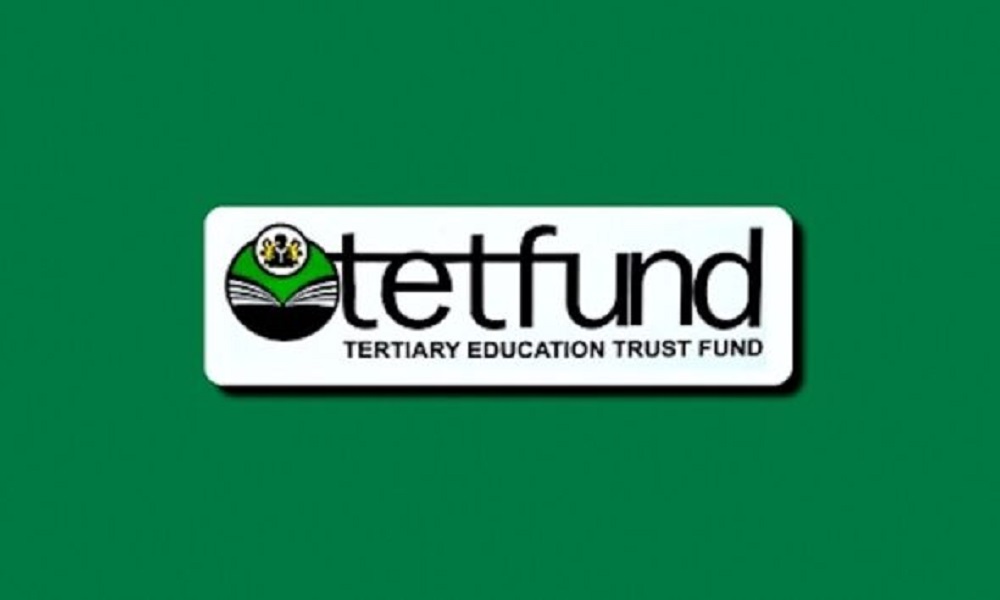News
RMAFC Challenges Tinubu’s Tax Reform Bills Over Constitutional Validity

The Revenue Mobilisation, Allocation and Fiscal Commission (RMAFC) has strongly opposed President Bola Ahmed Tinubu’s contentious tax reform bill, which the National Assembly is currently considering.
In a comprehensive nine-page memorandum obtained by Economic Confidential, RMAFC outlined a range of legal, constitutional, and technical objections to the proposed legislation.
The document, signed by RMAFC Chairman Mohammed Bello Shehu, emphasized that Section 162(2) of the 1999 Constitution (as amended) grants the Commission the authority to determine the formula for equitable revenue sharing among the three tiers of government.
This mandate also includes ensuring that the formula reflects principles of fairness and justice.
“The Constitution designates RMAFC as the final authority on matters of revenue allocation,” the memorandum stated.
“As such, no Act of Parliament, including the VAT Act, can infringe upon this constitutional responsibility. Any such attempt would constitute a violation of the Constitution.”
RMAFC maintained that its role as the exclusive arbiter in developing fair revenue allocation formulas must be respected. Any deviation from its constitutional duties, it argued, could undermine the integrity of the Commission and compromise the principles of justice in revenue sharing.
In its submission, the Commission called for an approach to Value Added Tax (VAT) allocation that accounts for the unique nature of VAT as a consumption tax.
It proposed a formula developed by RMAFC that would ensure equitable distribution among federal, state, and local governments.
The memorandum outlined the following points:
1. Equitable Allocation Formula: VAT allocation and derivation should be based on a formula developed by RMAFC. This formula would consider VAT’s consumption-based nature, ensuring fairness in distribution.
2. Recognition of Consumption Patterns: The formula would factor in consumption rather than merely production or the location of company headquarters, ensuring balanced benefits.
3. Support for Weaker Economies: Special consideration would be given to states with weaker economies, promoting national cohesion and fairness across all tiers of government.
RMAFC concluded the memorandum with several recommendations.
It urges he federal government to empower the Commission to finalize a VAT allocation formula in line with its constitutional mandate, reinforcing Constitutional Mandates by ensuring that VAT allocation strictly follows RMAFC’s framework, not arbitrary provisions in the VAT Act or the proposed reform bill.
The memo urges dialogue among federal, state, and local governments to secure consensus on the RMAFC’s formula, thereby reducing tensions and ensuring acceptance.
The memo also cautions legislative or executive measures that undermine RMAFC’s authority and advocates implementing systems like electronic invoicing to tag VAT collections to end-user locations, enhancing transparency and accuracy.
The Commission warned that the proposed tax reform bill threatens national unity and constitutional harmony.
By adhering to its constitutional mandate, RMAFC believes it can provide an equitable solution to revenue allocation disputes while safeguarding the principles of fairness and justice.
PRNigeria reports that the Revenue Mobilisation, Allocation, and Fiscal Commission (RMAFC) is a constitutional empowered to ensure the equitable distribution of the country’s financial resources among the three tiers of government: the federal, state, and local governments.
It is mandated that the revenue allocation formula be reviewed to ensure equitable distribution among the three tiers of government to reflect fairness, justice, and equity, taking into account.
It is also empowered to monitor the accruals and disbursements from the Federation Account to ensure compliance with the revenue-sharing formula and advise the federal, state, and local governments on fiscal efficiency and revenue diversification.
News
Union seals Lagos company over racial discrimination of workers

The National Union of Textile, Garment and Tailoring Workers of Nigeria (NUTGTWN), an affiliate of the Nigeria Labour Congress (NLC), has shut down operations at MDV Sacks Ltd, a subsidiary of the Bhojsons Group, over alleged exploitation, inhumane treatment, and racial discrimination against over 300 Nigerian workers.
The company, located within the Lafarge Cement premises in Ewekoro, Ogun State, is accused of compelling its factory workers to pay N18,000 for protective boots while refusing to provide basic employment rights, including allowances, annual leave, and formal employment letters.
The union also alleged that MDV Sacks Ltd actively suppresses workers’ rights to unionize, a clear violation of Nigeria’s labour laws.
On Monday, members of the Textile Union, backed by other NLC-affiliated unions, stormed the factory in a protest that disrupted activities at the facility. The demonstrators, chanting solidarity songs and carrying placards with messages like “Injury to one is injury to all” and “MDV Lafarge management, stop harassment and intimidation of workers”, called on all employees to vacate the premises until their grievances are addressed.
While the majority of workers complied and walked out in support of the union, a handful reportedly remained on duty.
Deputy General Secretary of NUTGTWN, Comrade Emeka Nkwoala, who addressed journalists during the protest, expressed deep concern over the company’s failure to honour commitments reached during a mediation meeting held on May 7, 2025.
“At the meeting, it was agreed that union activities would be allowed to commence without obstruction and that workers would be given formal employment letters,” Nkwoala said.
“Unfortunately, the management of MDV Sacks Ltd has gone back on its word. Some of our members have been unjustly laid off, while others are subjected to degrading and exploitative working conditions. There are clear rules of engagement under Nigerian law, and we will not allow modern-day slavery to persist under any guise.”
Nkwoala further accused the company of fostering a culture of racial discrimination, alleging that Nigerian workers are treated unfairly in comparison to their expatriate counterparts.
He described the demonstration as peaceful and orderly, adding that the Ogun State Ministry of Labour has now stepped in to mediate. According to him, the Ministry has directed that the status quo be maintained, with sacked workers recalled and all outstanding entitlements paid.
The union has vowed to continue its advocacy until the affected workers receive justice and the company is held accountable for its actions.
News
CBN warns public against fraudsters claiming to act on its behalf

The Central Bank of Nigeria (CBN) has warned the public against the antics and activities of fraudsters, claiming to act on behalf of the apex bank through bogus claims or the award of fictitious contracts.
The CBN acting Director, Corporate Communications, Mrs. Sidi Ali Hakama, gave the warning in an advisory issued by the bank.
She said the attention of the CBN has been drawn to the activities of individuals and groups falsely claiming to represent or act on behalf of the apex bank, by circulating fictitious offers of contracts, loans, grants, intervention funds, and other financial benefits allegedly issued or endorsed by the CBN.
The CBN spokesperson expressed concern that despite the public advisory issued on November 18, 2024, through the bank’s official channels and news outlets, these misleading schemes have persisted, targeting unsuspecting members of the public with false and deceptive narratives.
Accordingly, the CBN reiterated that it has not authorised, licensed, or appointed any individual, group or organisation to act as an agent or intermediary in offering contracts, financial grants, or intervention funds to the public.
“The CBN also does not endorse or support such claims in any form.
“Members of the public are advised that the CBN does not award contracts or disburse funds through unsolicited communications such as e-mails, phone calls, SMS, WhatsApp, or any social media platform.
“It also does not request payment of fees in exchange for contracts, grants, or financial interventions, nor does it engage intermediaries or third parties to offer financial services or opportunities to the public.
“If you are approached by individuals or entities making such claims, we strongly advise that you do not engage with them.
“Instead, such incidents should be reported immediately to the relevant law enforcement agencies or the nearest CBN Branch,” the advisory stated.
The apex bank added that it remains committed to safeguarding the financial interests of the Nigerian public and will continue to work closely with security agencies to investigate and address fraudulent activities.
News
TETFUND threatens to cut financial support to non-performing institutions

The Tertiary Education Trust Fund (TETFUND) has threatened to cut financial support to beneficiary tertiary institutions that fail to meet performance benchmarks or mismanage allocated funds.
The agency said it would de-list such tertiary institutions from its support programmes.
Executive Secretary of TETFUND, Sonny Echono gave the warning at a one-day strategic engagement with heads of institutions, bursars, and heads of procurement of the agency’s beneficiary institutions in Abuja on Monday.
Echono said the policy was not meant to punish, but rather safeguard the credibility and impact of TETFUND interventions.
He said: “Let me be clear, institutions that consistently fail to access, utilise or retire funds appropriately, or that fall short of enrollment and academic performance thresholds, risk being delisted as TETFUND beneficiary institutions.”
He also disclosed the intention of TETFUND to ensure that its resources were directed towards institutions that were committed to high standards of governance, transparency, and accountability.
Echono said the strategic engagement was targeted at addressing recurring challenges in Nigeria’s tertiary education sector, improving project execution, and enhancing the quality of education.
A key focus, he said, was the Academic Staff Training and Development (AST&D) intervention.
He said due to rising costs and incidents of scholars absconding, the foreign component of the TETFUND Scholarship for Academic Staff (TSAS) was suspended as of January 1, 2025 with emphasis now shifted to cost-effective, locally driven training.
Echono said this year’s intervention budget prioritises consolidation, sustainability, and the completion of abandoned projects.
He added: “This engagement is not merely a meeting but a strategic convergence. It is designed to address recurring issues of concern, streamline project implementation, and enhance the overall quality of tertiary education delivery in our nation.
“As we move forward, let us approach today’s discussions with openness, collaboration, and a shared vision to elevate our institutions and the students we serve.
“Together, we can strengthen accountability, drive innovation, and ensure that the legacy of TETFUND remains impactful, equitable and enduring for generations to come.”
Executive Secretary of the National Universities Commission (NUC), Professor Abdullahi Ribadu emphasised the importance of the meeting for evaluating the implementation and impact of TETFUND – supported projects in higher education institutions.
The NUC chief, who was represented by Dr. Joshua Atah appreciated TETFUND’s vital role in improving infrastructure, research, staff development, and academic quality, stating that without its support, public education would struggle to survive.
Prof. Ribadu acknowledged the adaptability of TETFUND’s policies, such as suspending international scholarships to reallocate resources more effectively.
He urged tertiary institutions to be more responsive and ensure that interventions were relevant and efficiently executed.
Ribadu encouraged judicious and timely use of funds and called for open and constructive dialogue during the engagement.
“This calls for greater responsiveness also on the part of the institutions. This responsiveness also includes the areas of the design and implementation of these interventions to ensure that they remain relevant, impactful, and aligned with the future of education in Nigeria.
“It’s also important that we judiciously utilise these resources, and not just judicious utilisation but also in a timely manner so that we don’t lose the fund,” he said.
-

 News24 hours ago
News24 hours agoJust in: Wike admits Fubara alongside 2 govs visited him on reconciliatory moves
-

 News21 hours ago
News21 hours agoGo home to face corruption probe, protesters in London tell Kyari (Photos)
-

 News24 hours ago
News24 hours agoAMCON, Others Dragged to Court Over Alleged Undervalued Sale of Ibadan Disco for $62m
-

 News7 hours ago
News7 hours agoUS revokes governor’s visa
-

 News8 hours ago
News8 hours ago2nd Anniversary: Tinubu to commission Abuja International Conference Centre – Wike
-

 News17 hours ago
News17 hours agoUK unions slam Govt’s decision to end care worker visas
-

 News16 hours ago
News16 hours agoSAD! Woman, child electrocuted in Edo
-

 Sports16 hours ago
Sports16 hours agoBrazil appoints Carlo Ancelotti as national team coach

















